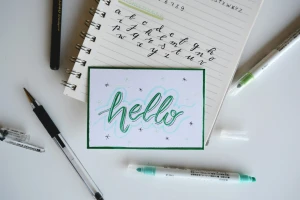Who would have thought that in just thirty years, the internet transformed from a 'luxury' service at campuses and internet cafes into the lifeblood of nearly every moment of our lives? In the mid-1990s, many of us still wrote letters, waiting weeks for a reply. Then, the internet appeared like a new window, offering a promise: a world brought closer together, friendships without borders, and cross-cultural exchanges that felt within reach.
Three decades later, that wonder remains, but shadows have grown longer. Has the world truly become more connected through the internet, or have subtler, often invisible barriers emerged? Does "being connected" truly mean "human closeness"? This article invites us to revisit the internet’s journey from 1995 and asks: in this digital era, what have we truly gained, and what have we unintentionally lost?
When Electronics Changed Our Sense of Distance
In 1995, the internet was just entering its teenage years in Indonesia. Modems hummed late into the night, internet cafes brimmed with the aroma of instant coffee and enthusiasm, and Yahoo! Messenger and email became added entertainments after school hours. Many saw the internet merely as a "tool," not a living space. Yet this medium quickly became a new crossroads: chatting with someone overseas was no longer impossible, and information from other continents crossed the globe within minutes.
Did our lives become smaller and simpler because of the internet? Most would say yes—pen pals increased, online communities blossomed, foreign cultures became easier to understand. Migrant workers received news from family without waiting for monthly mail packages. Students found discussion spaces without travelling far. There was magic in every click; the world seemed to shrink as people drew closer.
Social Media: Close in Distance, Distant at Heart?
In the following two decades, the virtual world offered a second home: social media. Facebook, Instagram, followed by TikTok and WhatsApp—all competed to provide us with a stage in the digital world. Everyone became a publisher; old friends reconnected; families chatted across time zones.
However, the easier it became to interact, the thinner the meaning of closeness became. Lengthy conversations gave way to emojis, deep discussions lost out to brief comments or viral memes. Wide networks often could not guarantee deep connections. Behind bright digital profiles, loneliness often felt sharper.
The "Filter Bubble" Phenomenon and New Forms of Isolation
Today, social media algorithms surface only news and stories matching our preferences. The world indeed feels smaller—but more like an echo chamber reflecting only our own voices. Perhaps we feel heard, but do we truly listen? Are we exchanging perspectives or merely choosing what confirms our existing beliefs?
The internet opens doors to diversity but also invites retreat into comforting bubbles. New barriers have formed—subtle yet sometimes harder to breach. Digital friendships are often built on algorithmic similarities rather than genuine encounters or spontaneous connections.
Cross-Cultural Exchanges: Opportunity or Challenge?
The internet has erased geographical boundaries, but has it truly dissolved psychological ones? Cultural exchanges are undoubtedly more accessible—from K-pop in Jakarta to batik in Seoul, all at the touch of a button. Yet digital stereotypes sometimes deepen divisions. Language also becomes a new battleground: emojis and memes are global, but their meanings can be highly local.
Multilingual connections allow us to meet anyone. Still, face-to-face spontaneity, untranslatable gestures, and nuances of humor often disappear in instant messages. People may argue all day online without ever genuinely meeting.
The Ease of Sharing, the Burden of Connecting
Since 1995, the internet has provided platforms to share stories, photos, creations, even hopes. Viral content has united millions during social movements or disasters. Yet at other times, this sea of information overwhelms us: too much to know, too many to follow.
How do we know when we’re truly connected to someone—or merely lost in the digital noise? Digital relationships tend to be light, quick, enjoyable, yet fragile. The internet offers data immortality but does not guarantee enduring relationships.
Fostering Digital Empathy
Empathy can grow through digital interaction—supporting community groups, fundraising, or simply checking in on someone we rarely meet. But this empathy requires effort: careful reading, seeking diverse perspectives, and embracing others’ unique experiences. Not easy when everything is compressed into a swift screen swipe.
The Future: Reexamining the Essence of Connection
Over 30 years, the internet has been an extraordinary bridge. Yet perhaps the time has come to ask again: What does "closeness" mean in the digital age? Is mere technical connection enough, or do we also need more presence—virtual or real—in our daily interactions?
After three decades, maybe it’s time not only to celebrate the internet’s convenience but also to recall the importance of building sincere, gentle, and humane connections. Technology assists, but closeness always begins with the intention and a desire to truly be present—even if sometimes only through a short message asking: "How are you today?"
Conclusion
Thirty years is a brief moment in human history, yet long enough to leave a profound mark. The internet has reshaped how we work, learn, and socialize—connecting distant corners of the world and bringing cross-cultural exchanges to our fingertips.
However, technological proximity doesn’t automatically equal emotional closeness. Digital connectivity offers opportunities but also new challenges: invisible distances that grow ever more palpable. Our shared task is not just to be part of a vast network but to maintain meaningful relationships filled with depth.
Closing
Thank you for taking the time to reflect on the history of the internet with me. May we always remember the values of warmth, empathy, and authentic conversation—even amid the relentless tide of technology. What internet experience has changed your life the most? Let's continue sharing stories and safeguarding humanity in every digital connection.




Responses